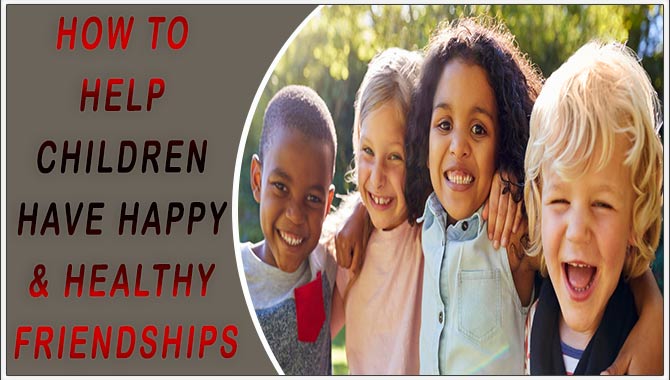Friends are important in our lives and can be a great resource for solving problems. They can also be a great support system during difficult times. The best way to make friends is by being open and accepting people for who they are. Don’t try to change or make them into something they’re not.
Just enjoy their company and laugh with them when the funny stuff happens. Be genuine in your friendships, and don’t expect more from them than they can give. Let them know how you feel without being too emotional or needy. And, most importantly, don’t take friendship for granted.
Bullying is not only a problem in school; it can also happen at home. We will provide insights on what you can do to help your child deal with mean friends. We will also provide tips to help your child to deal with mean friends on how to prevent bullying and what to do if your child is being bullied. By following these steps, you will be able to help them cope with bullies healthily and safeguard their emotional well-being.
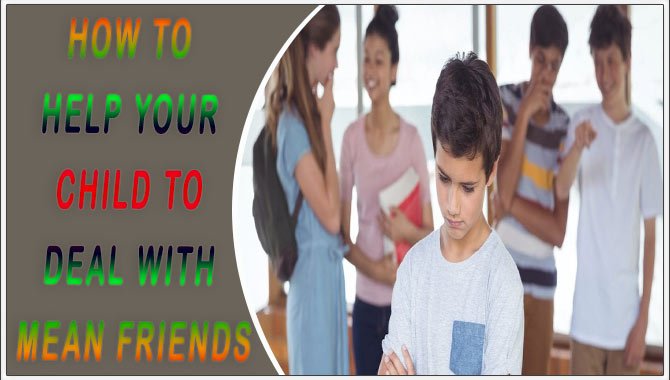
Ways How To Help Your Child To Deal With Mean Friends
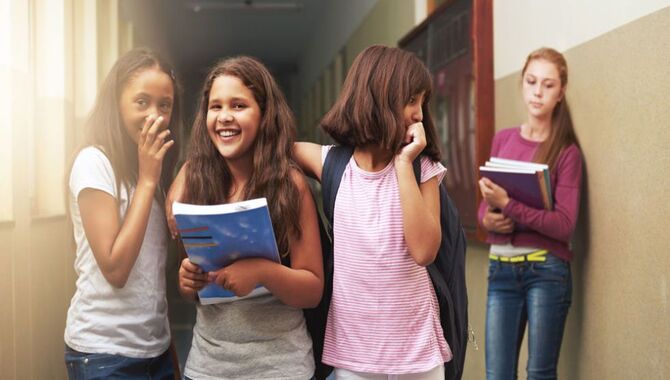
As a parent, it’s important to understand how to help your child deal with mean friends. The first step is talking to your child about the issue. You can discuss the benefits and negatives of friendships with mean peers and the different ways to handle conflicts with them. Make sure that your child knows the difference between healthy and unhealthy competition.
You can also help your child develop social skills and self-confidence. Activities such as group activities or playing games with other children can be ways to build relationships with them. Besides, spending time alone with your child can help him, or she learn how to interact with others independently. Also, try not to let your child become too dependent on mean friends, which may hinder their social and emotional development.
1.Listen And Connect When Your Kids Deal With Mean Kids
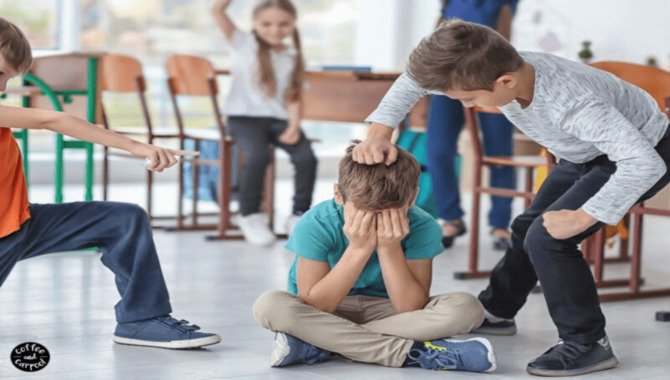
When your children are dealing with mean kids, it’s important to listen and connect with them. Make sure that you are available to support them and help them feel safe. It can be helpful to set boundaries for how your child interacts with mean kids, such as only engaging in certain activities or talking to certain people.
Suppose can also be helpful to encourage your child to talk about what is happening and offer support. It can take time for children to learn how to deal with mean peers effectively, so be patient and know that it will take time for them to learn how to cope.
2.Help Your Kids Find Real Friends.
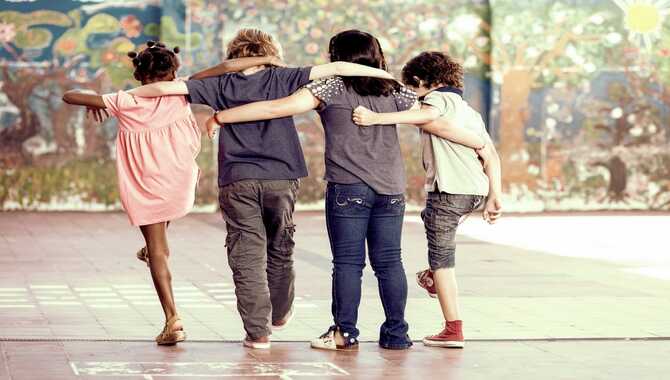
It can be tough for kids to deal with mean friends, and it can be even harder when those friends start spreading rumors or making your child feel uncomfortable. There are a few things you can do to help your kids find real friends. First of all, make sure you’re supportive and understanding.
Show them that you support them no matter what, and refrain from trying to get involved in their disputes. This will only make things worse. Secondly, try to set boundaries with your kids’ peers. Encourage them to keep their conversations with friends limited to acceptable topics and ensure they know when they’ve gone too far.
If necessary, take away their friendship privileges temporarily or permanently. This will help them understand that there are limits to how far they should go to hurt or offend someone else. Last but not least, ensure your children know the warning signs of being mean and how to deal with them if they encounter them. Help them understand that being mean is never worth it — no one wins.
3.Help Them Build Confidence To Stand Up To And Deal With Mean Kids.
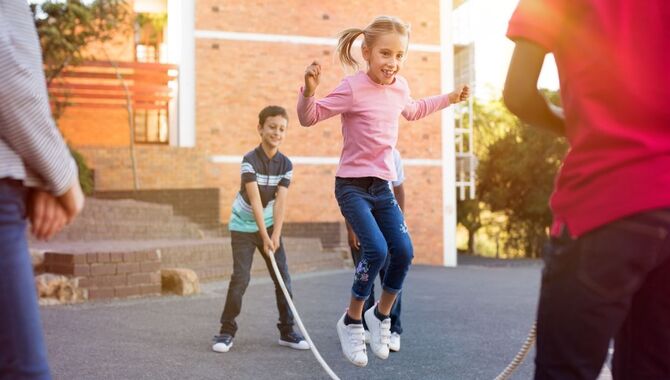
There are several things you can do to help your child deal with mean friends. First and foremost, provide them with support and encouragement. Encouraging your child to stand up for themselves and take action will build their confidence and allow them to gain more self-esteem.
You can also teach them to build confidence through assertive actions, such as speaking up at school or asking what they want. Finally, helping your child understand that it is okay to stand up for themselves will allow them to learn to assert themselves and be confident in their abilities.
4.Teach Them To Be Mad Without Being Mean

When your child meets someone new, it can be hard to know how to deal with them. You want them to be friendly and welcoming, but at the same time, you don’t want them to get hurt or ruled by this person. One way to help your child is to teach them how to be mad without being mean.
This means they should first identify what’s bothering them, and then they can express that in a non-violent way. For example, if their friend is picking on them or being disrespectful, they can say something like, “That doesn’t feel very nice. Is there something you’re not telling me?” This will help keep the peace while still voicing their concerns.
Another important thing to remember is that children are often more sensitive than adults regarding interpersonal relationships. They will likely react more negatively than adults if they feel wronged or unsupported in a social situation. So it’s important not just to teach your child how to handle mean friends; you should also ensure that you provide support during these challenging times.
5.Teach Them When To Get Help
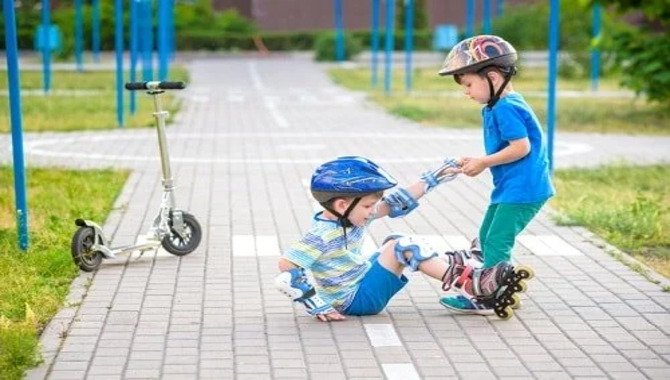
You must help your child learn how to deal with mean friends. When children are in the middle of bullies, they can feel vulnerable and scared. They may feel powerless to change the situation and want to avoid their bullies. But children need to know they can reach out for help when needed. It is good to encourage your child to seek help from an adult if they feel overwhelmed or threatened by their bullies.
It helps them to feel capable and in control of their own lives. You should also be available to listen and support them through this difficult time. If your child feels unsafe or uncomfortable, encourage them to discuss the situation with you. This will help you figure out ways to improve the situation and ensure your child’s safety.
6.Stand Back And Don’t Attack.
It is vital to stand back and not participate in mean behavior. Instead, try to redirect the conversation or offer your support. If your child is particularly upset, you may encourage them to seek advice from a trusted adult.
Ultimately, a strong and supportive family must help children navigate mean social situations and build healthy relationships. By standing back and being supportive, you can help your child learn how to handle challenging social situations and develop into a confident and resilient adult.
7.Don’t Swoop In And Save The Day.

Parents need to help their children healthily deal with mean friends. When parents take on the role of bullying expert, it can lead to a toxic cycle of bullying. Parents must encourage their children to stand up for themselves and not be a part of the problem. Instead, let them know you support them through this difficult time.
This can help your child feel supported and empowered while they work through the challenges posed by their mean friends. If you model good communication and conflict resolution skills yourself, your child will learn how to deal with bullies healthily.
8.Teach The Difference Between Bickering And Bullying.
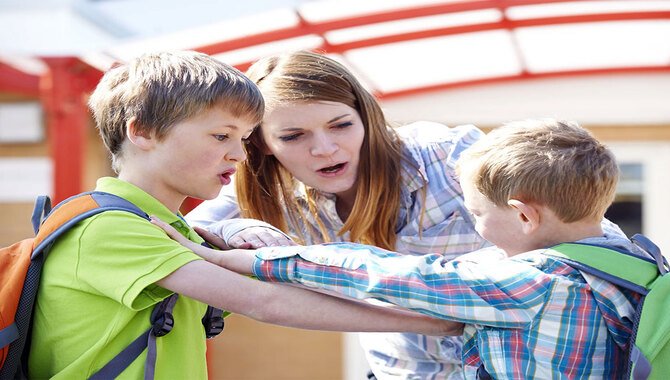
Bullying is a deliberate act of aggression against someone else. In bullying, the aggressor targets a specific person and engages in aggressive behavior to intimidate and harm that person. People engage in bickering as a playful argument that does not hurt or offend the other person. It is important to teach your child the difference between bullying and bickering so they can better understand how to deal with mean friends.
If your child experiences bullying, encourage them to discuss it with you. Talking about problems and working together to resolve them is always the best way to prevent bullying from escalating into bullying. Teaching your child how to cope with bullies and understand their behavior can help them learn how to deal with mean friends.
What Can You Do To Prevent Bullying?
Bullying can have a devastating effect on children, both emotionally and physically. There are a few things that you can do to help your child deal with the situation and prevent it from becoming too much of a problem. The first thing that you can do is to create a safe and supportive environment for them.
This means that you should ensure enough room for them to express their feelings and that they’re not constantly worried about what other people might think of them. You should also set clear boundaries about bullying behavior – no matter how big or small the incident may seem. If your child is being bullied, you must stand up for them.
This doesn’t mean confronting the person who’s bullying them directly; instead, it means talking to the school or parents about the situation to get help. It’s also important to encourage your child to talk about what’s happening, even if they want to avoid talking-cuss it in detail. Doing so will help them feel more comfortable discussing the issue and may lead to its resolution.
What To Do If Your Child Is Being Bullied By Mean Friends?
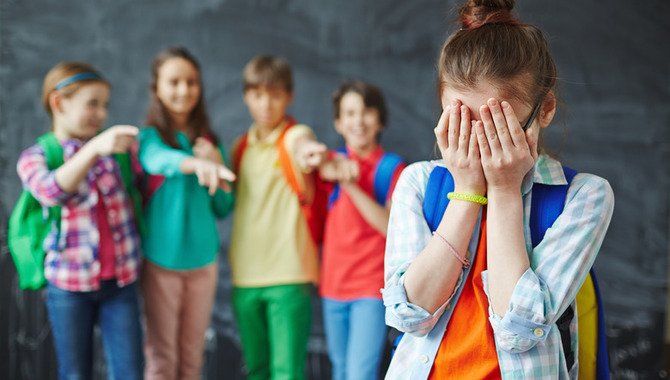
If mean friends are bullying your child, it’s important to talk to them about why mean friends do the things they do. Help your child understand that mean friends aren’t their friends- they’re just trying to make them feel bad so they’ll cry or be upset.
This will help your child see the hurtful nature of these behaviors. You can also help your child find new kind and friendly friends. Discuss ways to build friendships and relationships through positive interactions. You can have conversations about positive behaviors and statements, such as.
‘I see you doing good work on the playground’ or ‘I like the way you play soccer’ can go a long way in helping your child develop positive relationships with others. Lastly, talk to your child’s teacher about the situation.
If you think mean friends are unfairly targeting your child, tell the teacher that it isn’t healthy for them to be picked on constantly. Also, keep an eye on your child and ensure they are not being bullied.
What Can I Do To Make Sure My Child Does Not Bully Others?
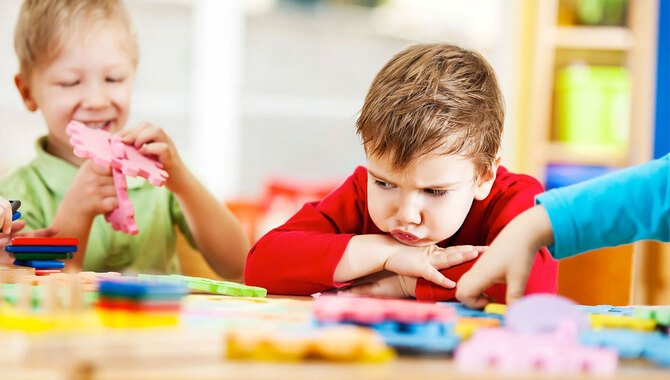
As a parent, you can play an important role in your child’s social development by helping them develop strong social skills and values. You can start by talking to your child about why it is important to be kind to others. Also, help your child understand that bullying is not okay.
Teach your child how to report bullying behavior if they see it happening. Finally, help your child develop strong social skills through activities such as playing with other children and reading books. By doing this, you can help protect the innocence of others and instill good moral values in your child.
Conclusion
Child development is a topic that is always changing and evolving. As children grow, they learn new things and go through different stages of development. It’s hard to believe, but friends are one of the most important things in our lives. They help us through tough times and make us feel better when we’re feeling down.
Making and keeping friends is a skill you can learn, but it takes time and effort. The best way to start is by being friendly and open-minded toward others. Next, be willing to listen when someone talks to you – even if you don’t have anything to say. Teaching your child how to deal with mean friends is an important task every parent should take on.
Not only will this help your child to develop resilience and emotional strength, but it will also help them to stay safe. You can help your child identify and respond effectively to negative situations by providing support and guidance.
In addition, teaching your child how to deal with mean friends will help to prevent them from developing negative attitudes towards others. We’ve discussed how to help your child deal with mean friends. Together, we can help everyone learn how to deal with mean friends positively.
Frequently Asked Questions
1.How Do I Get My Child Out Of A Toxic Friendship?
Ans: Getting your child out of a toxic friendship can be a daunting task. However, by talking to them about why they are spending time with the friend in question and making it clear that you don’t want them to spend time with that friend anymore, you can help them decide to cut ties. If your child refuses to stop hanging out with a friend, you may need to reach out to the school or child protective services.
2.How Do I Help My Daughter Deal With Frenemies?
Ans: If your daughter has Frenemies, encourage her to communicate with them. Explain that she wants to be friends, but only if they are willing to be friendly. You can also help your daughter understand why it is important not to gossip about or slander their Frenemy.
3.Why Is My Child Mean To Her Friends?
Ans: There are various reasons why your child might be mean to their friends. You should discuss why it is important not to bully others and how they can report bullying behavior if they see it happening.
4.What Are The Benefits Of Using Anger Management Techniques?
Ans: There are several benefits to using anger management techniques. These can include reducing stress and anxiety, improving your overall mental health, and increasing the effectiveness of your parenting skills.
5.Is There Any Evidence That Anger Management Techniques Work?
Ans: There is evidence to suggest that anger management techniques can work. A study published in the journal Psychological Reports found that participants who received anger management training were less likely to experience angry outbursts than those who did not.
A study published in JAMA Pediatrics found that children ages 8-11 who received intervention for aggressive behavior were significantly less likely to initiate physical aggression towards peers than kids who did not receive treatment.

